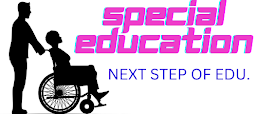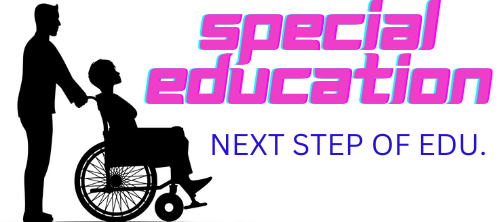UNIT-5.1
In this Unit-
Human Resources Development ( HRD ) in Disability Sector
1. Current status
2. Needs
3. Issues
4. The importance of working within an Ethical framework
-----------------------------------------------------------
HUMAN RESOURCES DEVELOPMENT IN DISABILITY SECTOR
1. CURRENT STATUS
Human resource development (HRD) in the disability sector has been gaining increasing attention in recent years, as there is a growing recognition of the need to improve the quality of care and services provided to individuals with disabilities. The current status of HRD in the disability sector can be explored through several lenses, including the availability of training programs, the types of skills and knowledge emphasized in those programs, and the challenges and opportunities facing the field.
Availability of Training Programs
There are a variety of training programs available for personnel working in the disability sector, including formal education programs, on-the-job training, and continuing education opportunities. Formal education programs can include undergraduate and graduate degree programs in fields such as special education, rehabilitation counseling, and social work. In recent years, there has been a growing emphasis on interdisciplinary education and training, which seeks to provide a more comprehensive understanding of the complex needs and experiences of individuals with disabilities.
On-the-job training is also an important part of HRD in the disability sector. This can include mentoring, coaching, and other forms of informal learning that occur in the workplace. However, the quality and consistency of on-the-job training can vary widely, and there may be limited resources available to support this type of learning.
Continuing education opportunities are another important aspect of HRD in the disability sector. These can include workshops, conferences, and online courses, which provide personnel with opportunities to update their skills and knowledge, learn about new research and best practices, and connect with other professionals in the field. However, access to continuing education opportunities can be limited by factors such as cost, location, and time constraints.
Skills and Knowledge Emphasized in Training Programs
The skills and knowledge emphasized in HRD programs in the disability sector can vary depending on the specific field and setting. However, there are several key areas that are typically covered in training programs, including:
1. Disability awareness: Training programs typically provide an overview of the various types of disabilities, their causes, and the impact they can have on individuals and their families. This includes an emphasis on the social model of disability, which recognizes that disability is not solely a medical issue but is also shaped by societal attitudes, policies, and structures.
2. Communication skills: Effective communication is critical for personnel working with individuals with disabilities, and training programs typically emphasize the importance of using appropriate language and nonverbal communication, as well as strategies for addressing communication barriers.
3. Assistive technology: Training in the use of assistive technology, such as hearing aids, wheelchairs, and communication devices, is an important component of HRD in the disability sector. Personnel must be able to identify appropriate assistive technology solutions for individuals with disabilities and provide training and support in their use.
4. Advocacy: HRD programs also emphasize the importance of advocacy for individuals with disabilities. This includes an understanding of the legal and policy frameworks that govern disability rights, as well as strategies for advocating on behalf of individuals with disabilities and their families.
5. Cultural competency: Finally, HRD programs in the disability sector often emphasize the importance of cultural competency, including an understanding of the diverse backgrounds and experiences of individuals with disabilities, as well as the cultural and linguistic factors that can impact care and services.
2. NEEDS
Human resource development (HRD) in the disability sector refers to the process of equipping individuals and organizations with the skills, knowledge, and attitudes needed to effectively support people with disabilities. HRD plays a crucial role in improving the quality of life of people with disabilities by enhancing the competence of disability service providers and organizations. This article aims to provide a detailed overview of the importance, challenges, and strategies of HRD in the disability sector.
Importance of HRD in the Disability Sector:
HRD is essential in the disability sector because it enables disability service providers to provide high-quality, person-centered support to people with disabilities. People with disabilities often require specialized support and care, and HRD ensures that service providers have the necessary skills and knowledge to meet these needs. HRD can also improve the job satisfaction and retention of disability service providers by providing them with opportunities for professional development and career advancement.
Challenges of HRD in the Disability Sector:
Despite the importance of HRD, there are several challenges that must be addressed to ensure its effectiveness in the disability sector. Some of these challenges include:
1. Funding: Many disability service providers operate on limited budgets, making it difficult to invest in HRD programs.
2. Recruitment and Retention: The disability sector faces a shortage of skilled professionals, and the turnover rate for disability service providers is often high. This can make it challenging to develop and maintain a stable workforce.
3. Accessibility: People with disabilities often face barriers to accessing training and development opportunities. HRD programs must be designed with accessibility in mind to ensure that everyone has equal access to training and career advancement opportunities.
Strategies for HRD in the Disability Sector:
Despite these challenges, several strategies can be implemented to promote effective HRD in the disability sector. Some of these strategies include:
1. Collaboration: Disability service providers can collaborate with other organizations and agencies to share resources and expertise, reducing costs and improving the quality of training and development programs.
2. Incentives: Offering incentives such as career advancement opportunities and financial rewards can encourage disability service providers to participate in HRD programs and increase retention rates.
3. Technology: Technology can be used to provide accessible, cost-effective training and development programs. For example, online training modules can be designed to be accessible to people with disabilities, and video conferencing can be used to provide remote training.
4. Person-Centered Approach: HRD programs should be designed with a person-centered approach, taking into account the specific needs and preferences of people with disabilities. This approach can improve the effectiveness and relevance of training and development programs.
In conclusion, HRD plays a vital role in the disability sector, enabling disability service providers to provide high-quality, person-centered support to people with disabilities. While there are several challenges to effective HRD, there are also several strategies that can be implemented to address these challenges and promote effective HRD in the disability sector. By investing in HRD, disability service providers can improve the quality of life of people with disabilities and create a more inclusive society.
3. ISSUES
1. Funding:
2. Recruitment and Retention:
3. Accessibility:
4. Person-Centered Approach:
5. Training Content:
6. Cultural Competence:
4. THE IMPORTANCE OF WORKING WITHIN AN ETHICAL FRAMEWORK ( HRD )
The disability sector plays a crucial role in supporting people with disabilities and ensuring they have access to the necessary resources and services they need to thrive. However, this sector faces a unique set of challenges when it comes to ethical considerations. Working within an ethical framework is of utmost importance for human resources in the disability sector. This essay will explore why ethical frameworks are essential in the disability sector, what ethical principles are important to consider, and how HR professionals can implement ethical frameworks in their work.
The importance of working within an ethical framework in the disability sector cannot be overstated. First and foremost, it ensures that the rights and dignity of people with disabilities are respected and upheld. Disability is a sensitive and complex issue, and ethical guidelines provide guidance to HR professionals to navigate these complexities. Additionally, an ethical framework ensures that HR professionals are operating within legal and regulatory guidelines, which are crucial for the sustainability of organizations operating within the disability sector.
There are several ethical principles that are important to consider in the disability sector. Firstly, the principle of respect for persons is a key principle. This principle requires HR professionals to treat people with disabilities with dignity, respect, and autonomy. It recognizes the intrinsic value of every human being and requires that people with disabilities are treated with the same level of respect and autonomy as those without disabilities.
Another essential ethical principle in the disability sector is non-maleficence, which requires HR professionals to do no harm to people with disabilities. This principle includes taking steps to prevent harm, such as avoiding neglect, abuse, and exploitation, and ensuring that people with disabilities are not subjected to unnecessary risk or harm.
Beneficence is another important ethical principle that requires HR professionals to act in the best interests of people with disabilities. This principle includes providing access to high-quality services, resources, and support, as well as promoting the wellbeing and quality of life of people with disabilities.
Finally, justice is an essential ethical principle that requires HR professionals to ensure that resources, opportunities, and services are distributed fairly and equitably. This principle recognizes that people with disabilities face significant barriers to participation in society, and it is the responsibility of HR professionals to work towards breaking down these barriers and promoting social inclusion.
To implement ethical frameworks in the disability sector, HR professionals must be trained in ethical principles and guidelines. They must understand the legal and regulatory requirements of the sector and be aware of the risks and challenges associated with working with people with disabilities. Additionally, HR professionals must be able to recognize ethical dilemmas and know how to address them in a manner that is consistent with ethical principles and guidelines.
HR professionals can implement ethical frameworks in several ways. Firstly, they can develop and implement policies and procedures that reflect ethical principles and guidelines. This may include policies around the prevention of abuse and neglect, policies to promote inclusion and equality, and procedures for addressing ethical dilemmas.
Secondly, HR professionals can provide training and support to staff to ensure that ethical principles are understood and followed. This may include training on the prevention of abuse and neglect, training on the promotion of inclusion and equality, and training on how to address ethical dilemmas.
Finally, HR professionals can develop partnerships and collaborations with other organizations to promote ethical practices and principles in the disability sector. This may include partnerships with advocacy groups, disability organizations, and regulatory bodies.


.jpg)


0 Comments
Have you any doubt, Tell me ;